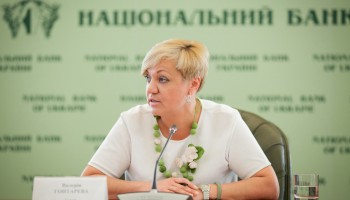Hotel Tannenhof in Austria’s elite St. Anton am Arlberg ski area, perched high in the Alps, is as exclusive as it is lavish. Touted as a “luxury bolthole,” it comprises seven large suites, with the most expensive going for around $6,000 per night, and almost twice as many staff as guests.
A concierge service caters to guests’ every whim, while a gourmet restaurant offers dishes like Tyrolean prawn with caviar, and pheasant with chanterelle. Staying there is “as if your closest billionaire friend decided to create a fabulously luxurious and yet personal Alpine retreat,” a British travel journalist wrote.
According to multiple media reports, Hotel Tannenhof is owned and run by the husband-and-wife team of Axel Bach and Judith Volker, who are said to have completely rebuilt it in 2011 before it opened to guests the following year.
In a 2017 interview, Bach said an unexpected inheritance had helped him “realize his philosophy” of hospitality, implying that he used the windfall to buy the hotel. “The notary was searching for me for one and a half years, and asked me what I would now do with all the money!” he said.
Another story published the same year reported that Bach and his wife sold an estate in Italy to buy the hotel. Staff were also told that Bach and Volker owned the facility, according to the hotel’s former chef, James Baron.
Austrian and Cypriot corporate records tell a very different story. Between 2010 and 2015, Hotel Tannenhof was actually owned by Russian state-controlled bank VTB, which has been dubbed President Vladimir Putin’s “piggy bank.”
The U.S. and EU sanctioned VTB in 2014 in response to Russia’s invasion of the Crimean peninsula. The following year, Hotel Tannenhof’s ownership structure changed.
Before the sanctions, VTB had owned it through a subsidiary in Cyprus, ITC Consultants (Cyprus) Ltd. which in turn owned another Cyprus firm, Persifa Ltd., which owned the hotel.
But in 2015, ownership of the holding company Persifa passed to another Cyprus company, Cahulia Ltd.
The owner of Cahulia was hidden behind corporate nominees, making it impossible to know who was really behind the hotel.
However, three years later a new Austrian law entered into force requiring all companies to declare their ultimate beneficial owners, or UBOs for short.
This would have forced Hotel Tannenhof to reveal the true owner of Cahulia. But the hotel appears to have taken advantage of a loophole stating that any Austrian company owned equally by two ultimate shareholders has no beneficial owner.
Around the time the law was brought in, Cahulia sold 50 percent of the hotel’s holding company to another Cyprus firm, Aktien Enterprises Ltd, for the nominal sum of $584, giving them both equal stakes. As a result, Austria’s beneficial owner register does not show who really owns Hotel Tannenhof. It only reveals the directors: Axel Bach and another corporate nominee.
Florian Horcicka, an Austrian author and expert on money laundering, called this “a prime example of financial constructions by oligarchs.”
“As long as no official investigations into money laundering have started, it will not be possible to force the two managing directors to testify. And even if they did, they wouldn't have to tell the truth as the accused.”
But maintaining this secrecy was also dependent on Cyprus’s corporate secrecy laws, which allowed the real owners of companies to be hidden behind nominee structures.
That all changed last month, when — after years of pressure from the European Union and corporate transparency campaigners — Cyprus unveiled its own registry requiring the true owners of companies to declare themselves publicly for the first time.
The owner of Aktien Enterprises, it turns out, is a man named Eric Whyte — a Canadian citizen who appears to have spent years fronting for VTB Chairman Andrei Kostin, helping hide his ownership of properties and other valuable assets across Russia and Europe.
“Until recently, we didn’t have a UBO [ultimate beneficial owner] registry that was operational, so it was easy to hide the Russian ownership,” said Anna Stylianou, an anti-money laundering expert in Cyprus.
Aktien Enterprises
In addition to being owned by Kostin’s alleged proxy, Aktien Enterprises has several other links to VTB and its chairman.
Kostin, a Putin loyalist, has allegedly amassed a personal fortune worth hundreds of millions of dollars during his 20 years at the helm of VTB.
The U.S. and EU sanctioned Kostin in 2018. Both the bank and its chairman also faced fresh Western sanctions this year after Russia invaded Ukraine. This means that anything owned by either VTB or Kostin in Europe would be subject to seizure by authorities — unless the connection were hidden.
Horcicka, the Austrian money laundering expert, said the setup raised questions about whether Hotel Tannenhof was secretly controlled by Kostin.
“Somebody put a lot of effort in hiding the real ownership,” he said.
The other Cypriot company behind the hotel, Cahulia, is owned by Rois Potamitis, an accountant in Cyprus who is managing partner at the consultancy and accountancy firm BDO.
Potamitis also has a connection to VTB: He is listed as the trustee of the two trusts that own Mitarva Limited, one of the companies that took over VTB’s former Cyprus subsidiary, RCB. (In an investigation published in April, OCCRP showed how VTB appeared to have shifted the bank’s ownership to opaque Cyprus companies to evade sanctions.)
Asked about his link to the hotel, Potamitis confirmed by email that he owned part of it through Cahulia. His email message also showed that he had referred OCCRP’s question to Andrey Vedenkov, first deputy CEO of RCB, before replying.
“I should confirm info,” he wrote to Vedenkov.
In a follow-up message, Potamitis said he had emailed Vedenkov by mistake because he was typing on his iPhone, and that he was not acting “on behalf of anybody” in his ownership of Cahulia.
Presented with reporters’ findings, Bach did not dispute that VTB had owned Hotel Tannenhof until 2015, but he declined to comment on why he and his wife were described in media reports as having bought the hotel themselves.
Bach told OCCRP that Kostin had stayed at the hotel as a guest, but did not own it.
However, he refused to name the hotel’s current owners, referring to them only as “a private individual who later sold a stake in the hotel to another private individual.” He declined to give further details, saying only that “both of these people are not Russian by birth or passport,” and did not respond to follow-up messages asking whether he was referring to Eric Whyte and Rois Potamitis.
“[T]he sanctions against him [Kostin] or the VTB Bank, which he heads, have no direct or indirect connection with the hotel,” Bach added.
Judith Volker declined to comment. Neither Kostin nor VTB responded to requests for comment.
Graphics by Edin Pašović (OCCRP).

